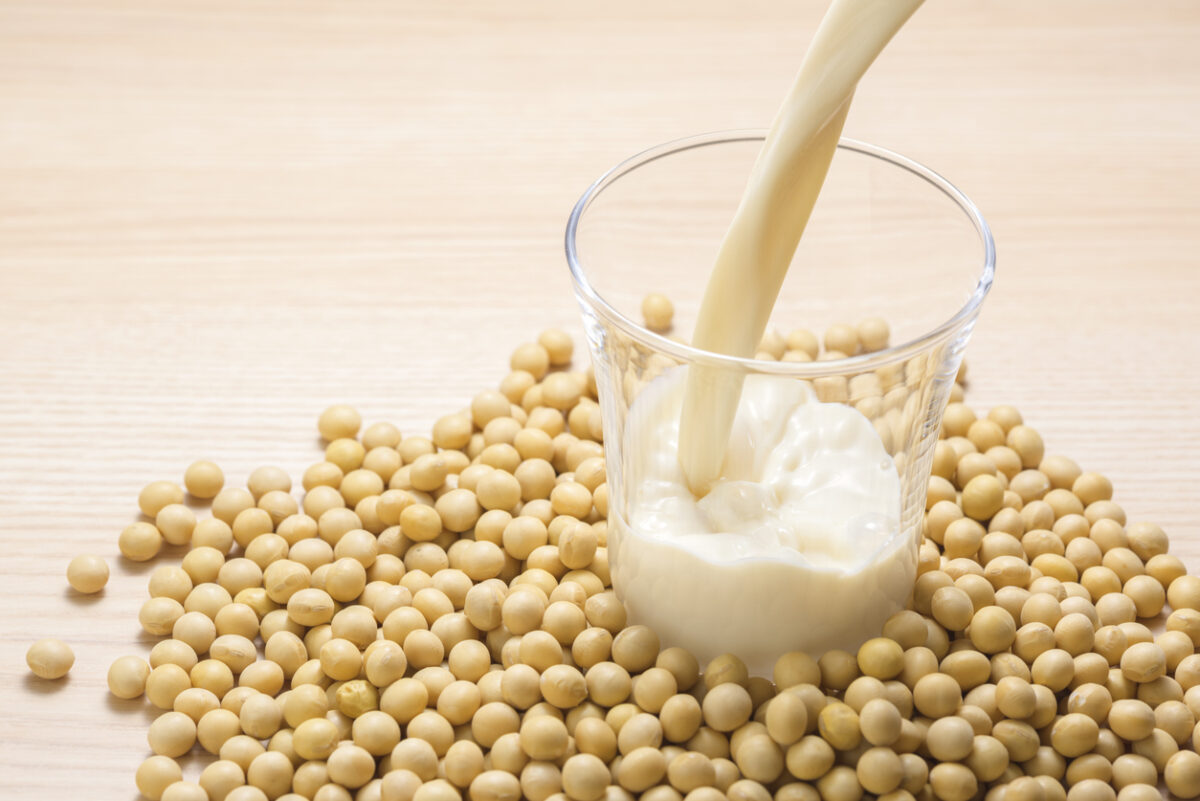Soy milk is a popular plant-based alternative to dairy milk, often praised for its health benefits. However, concerns about its effect on hormones, particularly due to its isoflavone content, have led to confusion. This article explores the real impact of soy milk on hormones, dispelling myths and highlighting the science behind its effects.

Understanding Isoflavones: The Key Compound in Soy
What Are Isoflavones?
Isoflavones are naturally occurring plant compounds found in soy. They belong to the phytoestrogen family, meaning they have a structure similar to human estrogen. However, their effect in the body is significantly weaker than real hormones.
Weak Estrogenic Activity
Although isoflavones can bind to estrogen receptors, their activity is much weaker than the body’s own estrogen. When isoflavones occupy these receptors, they can actually reduce the impact of stronger estrogens, leading to a balancing rather than a disruptive effect (NCBI).
Debunking the Myth: Does Soy Milk Affect Hormone Levels?
No Significant Impact on Testosterone or Estrogen
A common myth suggests that soy milk lowers testosterone in men or raises estrogen in women. Scientific research consistently shows that soy consumption does not lead to significant hormonal changes in either gender (Harvard Health).
Soy Isoflavones and Breast Cancer Risk
Some fear that soy increases breast cancer risk due to its estrogen-like structure. However, studies indicate that soy consumption may actually reduce breast cancer risk in certain populations, particularly in Asian women who consume soy regularly throughout their lives (American Cancer Society).
Why Fermented Soy Is More Effective
The Role of Fermentation
Most soy products, including soy milk, contain isoflavones in a form bound to large sugar molecules. These bound isoflavones require digestion in the gut before absorption, meaning the body may not fully utilize their benefits.
Better Absorption of Fermented Isoflavones
Fermented soy, found in products like miso, natto, and tempeh, undergoes a natural process that breaks down these sugar bonds. This makes isoflavones more bioavailable, meaning the body can absorb and use them more efficiently.
How Juveriente Effisoy Maximizes the Benefits of Soy Isoflavones
What Makes Effisoy Unique?
Juveriente Effisoy uses fermented soy isoflavones, ensuring maximum absorption and effectiveness. Unlike regular soy isoflavones, which require gut bacteria to break them down, Effisoy’s fermentation process delivers these beneficial compounds in a readily absorbable form.
Positive Customer Experiences
Users of Juveriente Effisoy report reduced menopause symptoms, including fewer hot flashes and improved sleep. Many appreciate the natural approach to hormone balance without synthetic estrogen or hormone replacement therapy.
Here are some of the real product reviews in our Amazon shop.
“Restful sleep finally!!”, “I Am Now Free of Hot Flashes!!”, “Lifesaver”

Conclusion
Soy milk and isoflavones do not disrupt hormones as some claim. Instead, they offer mild regulatory effects. Fermented soy ensures better absorption, maximizing benefits. Juveriente Effisoy provides a natural, effective alternative for hormone balance, making it a valuable choice for those seeking non-hormonal support.





